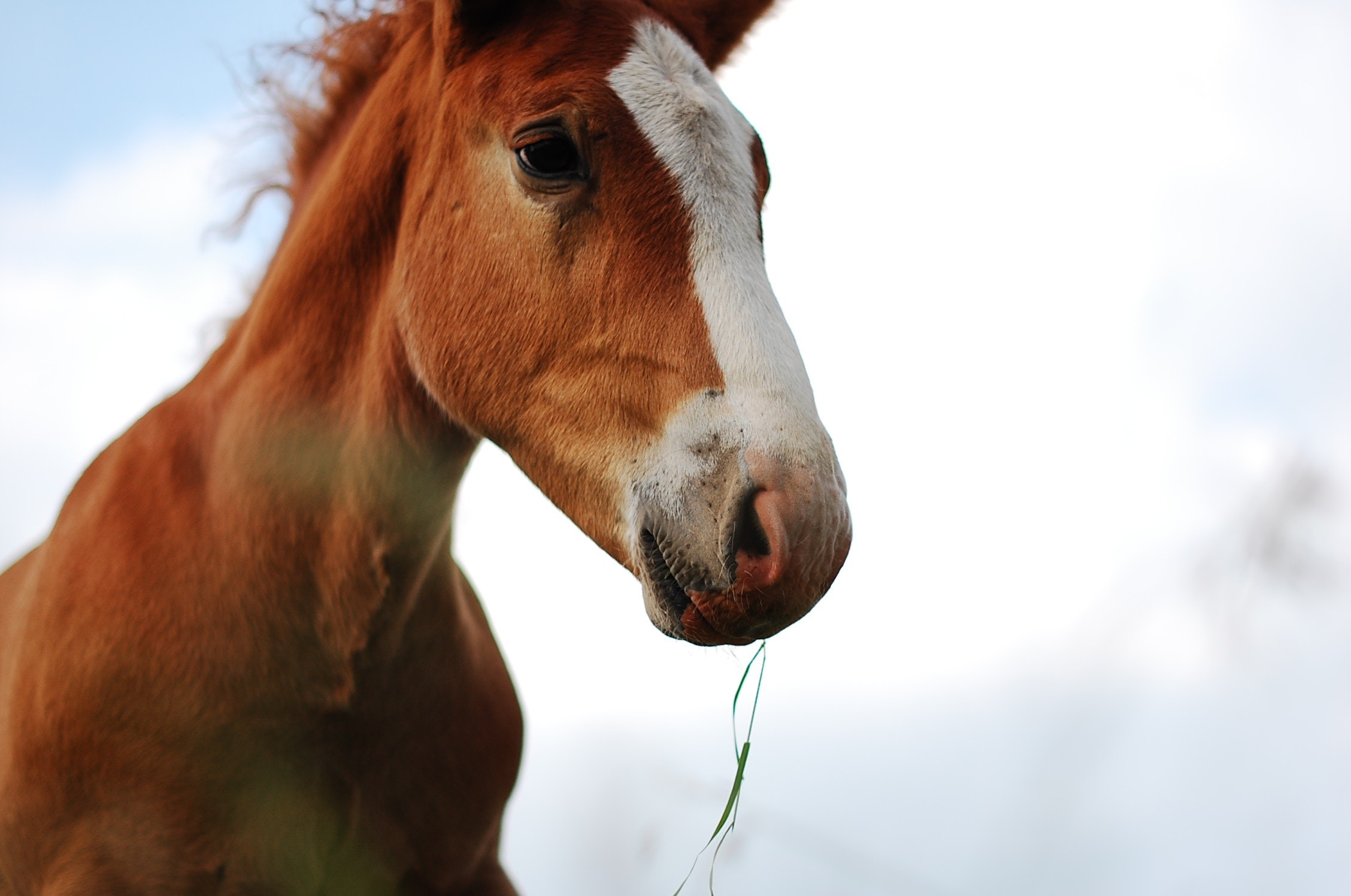Coughing foals and Rhodococcus equi
Rhodococcus equi (R. equi) is an intracellular, facultative, Gram-positive coccobacillus that is ubiquitous in soil. It is also one of the most common causes of pneumonia in foals worldwide.
Foals likely become infected early in life, by inhaling dust containing R. equi, especially if housed indoors or in dry lots. Clinically sick foals shed large amounts of R. equi in their feces, contaminating the environment. We do not know exactly why but over 80% of foals between 5 and 9 weeks of age on endemic farms can have ultrasound lesions in the lungs, whereas only 10–20% will actually become sick.
Clinical Signs
Early on, only fever and a slightly increased respiratory rate may be noted in 1-5-month-old foals. As the disease progresses, foals may also develop:
Decreased appetite, lethargy, increased effort of breathing characterized by nostril flaring and increased abdominal effort. Cough and nasal discharge occur inconsistently.
In some cases, R. equi can affect other parts of the body, causing: abdominal abscesses, colic, joint infection or synovitis, osteomyelitis near growth plates, or uveitis in the eyes. Extra-pulmonary signs decrease prognosis.
Prevention
Unfortunately, there is no vaccine available to prevent infection in foals. Instead, hyperimmune plasma and screening are the primary methods for prevention.
1) Hyperimmune Plasma (HIP):
Administered intravenously, the plasma contains antibodies against R. equi, hoping to boost the foal’s immune system and prevent clinical disease. Foals should receive at least 1L of plasma by 2 days of age, and may require a 2nd dose of HIP at 2 – 4 weeks of age as the antibodies decline. Unfortunately, treatment with HIP does not guarantee protection from clinical disease.
2) Ultrasound screening:
An ultrasound scan or x-ray of the lungs will identify abscesses in affected foals. These abscess can be measured, and then monitored, or treated if large (> 10cm) or the foal demonstrates clinical symptoms.
In sick foals, diagnosis is confirmed with tracheal aspiration and bacterial culture or PCR amplification of the bacteria’s vapA gene.
Treatment
With increased use of screening measures, more foals have been treated successfully earlier in the course of disease.
Antibiotics remain the key to treatment, as well as nursing care and supportive therapy depending on the clinical symptoms seen. Regrettably, antibiotic resistance is becoming more widespread. Therefore, only clinically ill or foals with large lung abscesses should be treated. Treatment may last weeks to months, depending on the severity of disease.
There is new research investigating the possibility of upregulating the foal’s own immunity to combat that bacterial infection, but this has not been clinically available yet.
More Information:
Your veterinarian can provide you more guidance on how to recognize and manage foals with R. Equi. Our specialty services are available to work with veterinarians on ultrasound identification of lesions and complicated case management. An environmental assessment and biosecurity review can also be done for endemic farms. Contact us using the links here and above for more information.
Bordin, AI, et al. 2020. Host-directed therapy in foals can enhance functional innate immunity and reduce severity of Rhodococcus equi pneumonia. Sci Rep 11, 2483 (2021).
AAEP: Rhodococcus equi pneumonia in foals – an update on epidemiology, diagnosis, treatment, and prevention by Dr. Noah Cohen.

